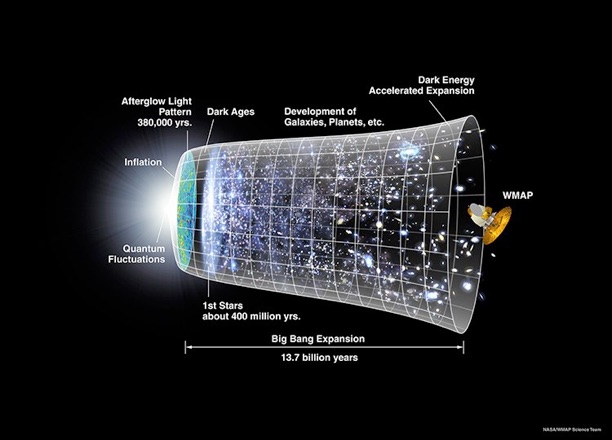The Leiden de Sitter
Cosmology Programme
Modern cosmology is a complex, multidisciplinary research area. Observations of the universe with state-of-the-art telescopes on Earth and in Space, supercomputer simulations of the origin of structure, and theoretical physics study of the Hot Big Bang, the expanding universe, and inflation, are providing a consistent picture of our universe which is quite precise yet full of unknown physics waiting to be discovered. Research in this area is moving very fast, and requires familiarity with the theoretical ideas as well as a feel for data.
The Leiden de Sitter cosmology programme aims to train young scientists in this exciting research field, either in the MSc specialisation or as part of its PhD programme.
With two recent Nobel prizes in physics awarded for the discovery of anisotropies in the cosmic background radiation (2006) and for the accelerated expansion of the universe (2011), the release of the first cosmology results from the Planck mission, and the European Space Agency’s decision to select the EUCLID mission to study the dark energy, the visibility and vitality of cosmology research continues to be very high.
The programme is run jointly by the Leiden university astronomy and theoretical physics departments. It is named after Willem de Sitter (1872-1934), who was director of Leiden Observatory at the time when the expansion of the universe was first discovered, and one of the first to study the ramifications of Einstein’s theory of general relativity in cosmology.
OPENINGS
Students interested in taking part in this challenging programme should please check here.

AIMS

Euclid (2022-)

Planck